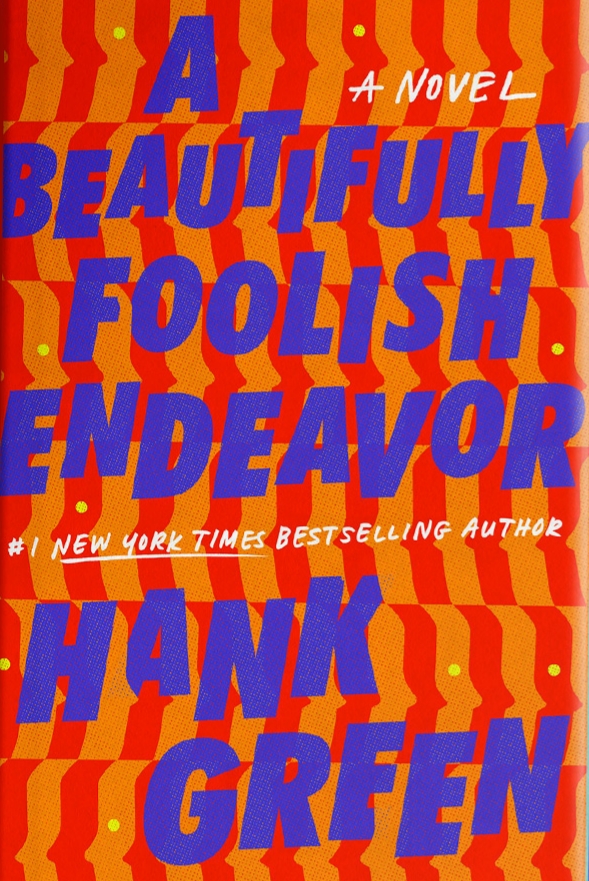- The Good: Timely themes about the media with which we saturate ourselves
- The Bad: Stakes are low, despite the world-changing events
- The Literary: Bonus conversation in the audiobook version between author Hank Green and Cory Doctorow
In the previous installment An Absolutely Remarkable Thing, the alien robots known as the Carls caused chaos and confusion around the world, eventually disappearing in an instant. April May, a young woman thrust into the limelight as their advocate goes missing as well. Months later, April’s friends have gone their separate ways, but they all want to believe April is still alive.
One of the things I really like about this sequel is the multiple viewpoints. In the first book, April was the only protagonist, and she wasn’t always a great person, so it’s refreshing to be in the heads of her friends. Andy is famous and trying to use his platform to make the world a better place, mostly speaking at conferences and posting online. Maya, April’s ex-girlfriend, believes she can find April by following a series of mysterious events down the New Jersey coast. Miranda is back to working on her PhD in the lab, but she becomes obsessed with a new venture that would allow her to work on a virtual reality that will change the world forever. Then each of them finds a book that tells them what to do in real time. They all follow the mysterious instructions to varying degrees, eventually leading them to an entirely unexpected reunion.
There’s some more plot stuff, and—slight spoiler—Carl and April both return, each in a new form. The antagonist from An Absolutely Remarkable Thing is back, this time as the head of a new company that creates an online virtual space that will change the way everyone learns. While the characters and the plot are good, I particularly enjoy all the science, but especially the discussions about social media, social issues, and even finance. The themes are extremely contemporary, and ask difficult, urgent questions about the technology that surrounds us today, including what we give away for free to corporations like Facebook, Amazon, and Google.
Highly recommended for anyone looking for an optimistic cautionary tale about technology!
